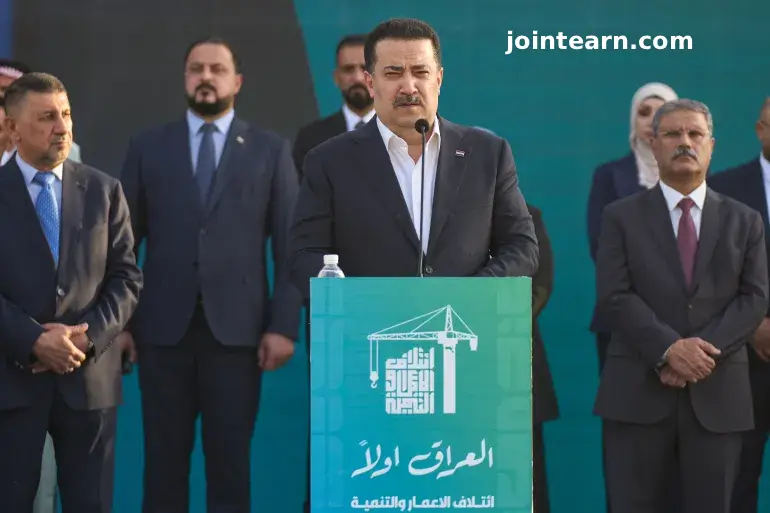
Baghdad, Iraq – November 10, 2025 – Iraqi Prime Minister Mohammed Shia al-Sudani may lead his Construction and Development Coalition to win the largest number of parliamentary seats in the November 11 elections, but analysts caution that this does not guarantee his continuation as prime minister. Post-election negotiations with rival Shia parties and the fragility of his coalition will be key determinants of his political future.
Al-Sudani’s Campaign and Coalition
Al-Sudani’s bid for a second term centers on his record in improving public services, maintaining a balanced foreign policy between Tehran and Washington, and keeping Iraq out of regional conflicts since October 2023. His coalition, formed in May 2025, unites seven political forces, including:
- Popular Mobilisation Forces (PMF) Chairman Faleh al-Fayyad
- Minister of Labour Ahmed al-Asadi
- Karbala Governor Nassif al-Khattabi
- Influential tribal sheikhs and 53 incumbent MPs, many of whom were independents or defected from the Shia Coordination Framework (SCF)
Al-Sudani’s own party, Al-Furratain Current, is the smallest faction in this broad alliance. Experts note that while al-Sudani’s coalition appears strong on paper, it is likely to fragment after the election, as members’ loyalty is transactional.
Risks of Coalition Fragility
Many coalition partners leverage al-Sudani’s position to secure state resources and influence in their districts. MP Dhiaa Hindi, for example, boasted about processing 16,000 official transactions during his tenure. However, these MPs may shift alliances after the election if rival blocs offer financial incentives or government positions, a pattern seen during former Prime Minister Mustafa al-Kadhimi’s tenure.
Al-Sudani faces the dual challenge of holding together his coalition while negotiating with SCF rivals like Qais al-Khazali and Nouri al-Maliki, who emphasize that the prime minister’s position is subject to Shia consensus under the Muhasasa system.
Electoral Strategy and Budget Allocation
Al-Sudani’s “Construction and Development” messaging emphasizes his achievements in Baghdad, where he has focused federal funds on visible projects such as roads and bridges. Critics highlight that provincial allocations have decreased sharply, with central and southern provinces—traditional SCF strongholds—receiving disproportionately less funding.
- Funds for Baghdad projects: 822 billion dinars ($629m)
- Combined allocation for central and southern provinces: 600 billion dinars ($459m)
- Karbala (al-Khattabi’s province): 318 billion dinars ($243m)
Observers say this strategy risks alienating key southern provinces while trying to build a high-profile legacy in Baghdad.
Post-Election Negotiations and Challenges
After the election, al-Sudani is expected to become caretaker prime minister, limiting his authority. SCF leaders have publicly reminded him that winning the most seats does not guarantee the premiership, emphasizing that the Shia bloc controls the selection process.
Al-Sudani must navigate:
- Maintaining cohesion of his diverse coalition, which includes tribal leaders, ministers, and MPs with differing priorities.
- Negotiating with SCF rivals, who may offer incentives to shift loyalty and block his second term.
Political analysts suggest that even a strong electoral showing may not secure al-Sudani’s continuation as prime minister, highlighting the complexities of Iraq’s sectarian-based political system.
“The path to a second term runs through the Coordination Framework, not around it,” analysts note, underlining the limits of electoral strength in Iraq’s consensus-driven politics.


Leave a Reply